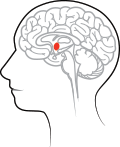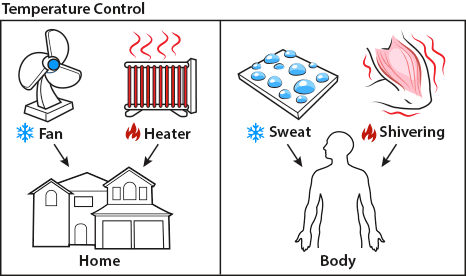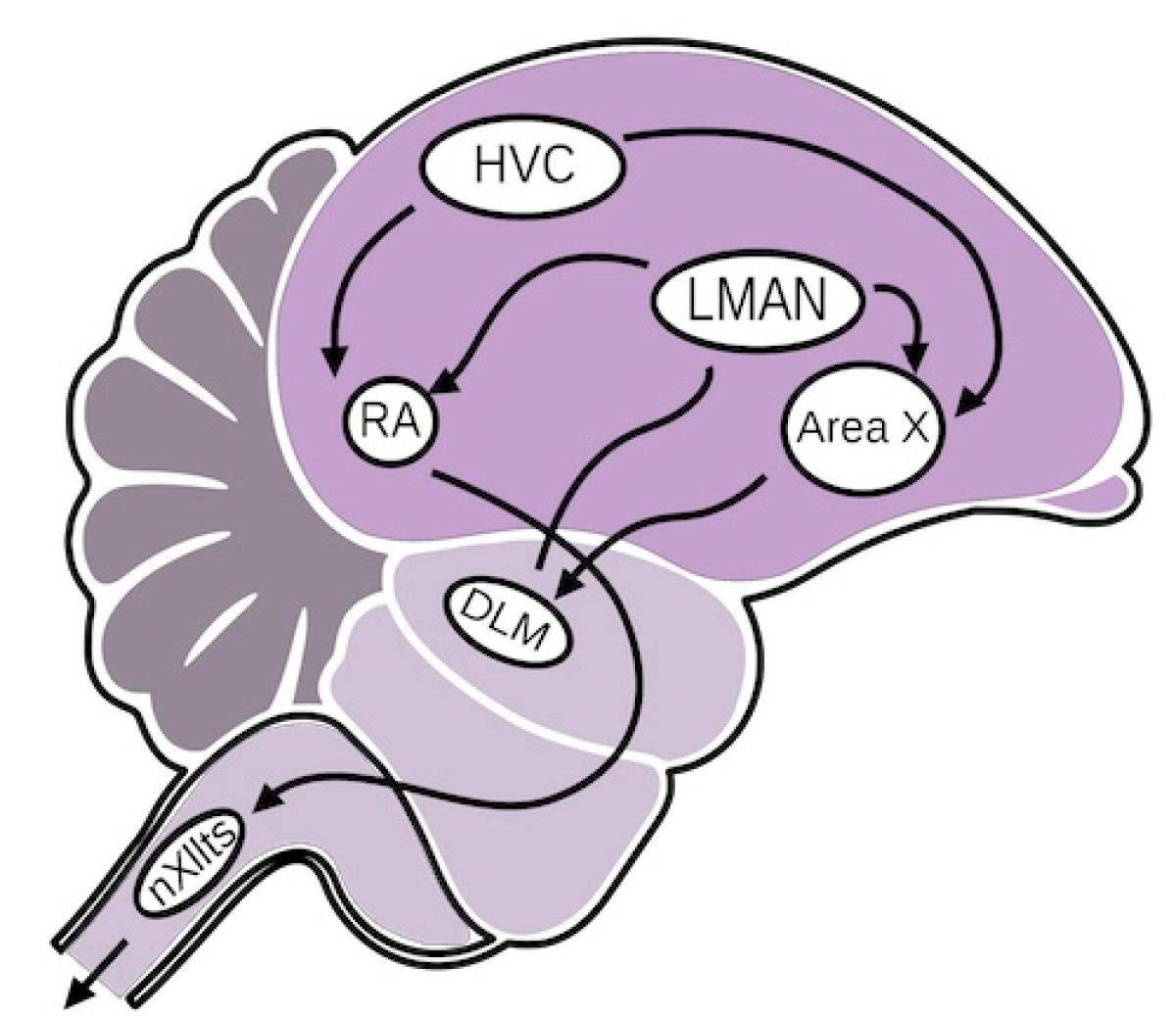The Brain

Sweat gets a bad reputation, even though it plays an important role in cooling down our bodies when we get too hot. But how, exactly, does your body know when to start sweating? It knows because a part of your brain, called the hypothalamus, tells it to. All humans and many animals have a hypothalamus.
The hypothalamus does many things, but two of its most important jobs are to maintain homeostasis and to control certain hormones. Homeostasis is very important to all animals, including humans. If we look at the word, we see that homeo means “the same”, and stasis means “not moving”, or “holding”. So homeostasis means that something is held at the same place.
Let’s think about homeostasis in terms of body temperature. Most animals maintain, or hold, their temperature at a certain level. For humans, this is about 98.6°F (37°C). When your hypothalamus senses that you’re too hot, it sends signals to your sweat glands to make you sweat and cool you off. When the hypothalamus senses that you’re too cold, it sends signals to your muscles that make your shiver and create warmth. This is called maintaining homeostasis. The hypothalamus also maintains homeostasis in lots of other ways, such as by controlling your blood pressure.

The hypothalamus also controls many of your hormones. It does this by being a sort of gatekeeper for other glands that release hormones. When your hypothalamus senses a change in your body, it will tell the right gland how to help correct that change.
For example, when you have too much homework and are stressed out, the hypothalamus will send a signal to your adrenal glands and they will release hormones that can help your body deal with the stress. For the stress response, this will result in the release of sugars, which will help to power you through your homework. The hypothalamus is also involved in the release of many other hormones that control everything from your blood pressure to how much you grow when you’re young. This makes the hypothalamus the main link between the brain and your hormonal, or endocrine, system.
Read more about: Singing in the Rain
Bibliographic details:
- Article: Hypothalamus
- Author(s): Dr. Biology
- Publisher: Arizona State University School of Life Sciences Ask A Biologist
- Site name: ASU - Ask A Biologist
- Date published:
- Date accessed:
- Link: https://askabiologist.asu.edu/bird-hypothalamus
APA Style
Dr. Biology. (). Hypothalamus. ASU - Ask A Biologist. Retrieved from https://askabiologist.asu.edu/bird-hypothalamus
Chicago Manual of Style
Dr. Biology. "Hypothalamus". ASU - Ask A Biologist. . https://askabiologist.asu.edu/bird-hypothalamus
Dr. Biology. "Hypothalamus". ASU - Ask A Biologist. . ASU - Ask A Biologist, Web. https://askabiologist.asu.edu/bird-hypothalamus
MLA 2017 Style

The pathway information takes in the brain of a bird when it learns a new song.
Be Part of
Ask A Biologist
By volunteering, or simply sending us feedback on the site. Scientists, teachers, writers, illustrators, and translators are all important to the program. If you are interested in helping with the website we have a Volunteers page to get the process started.

